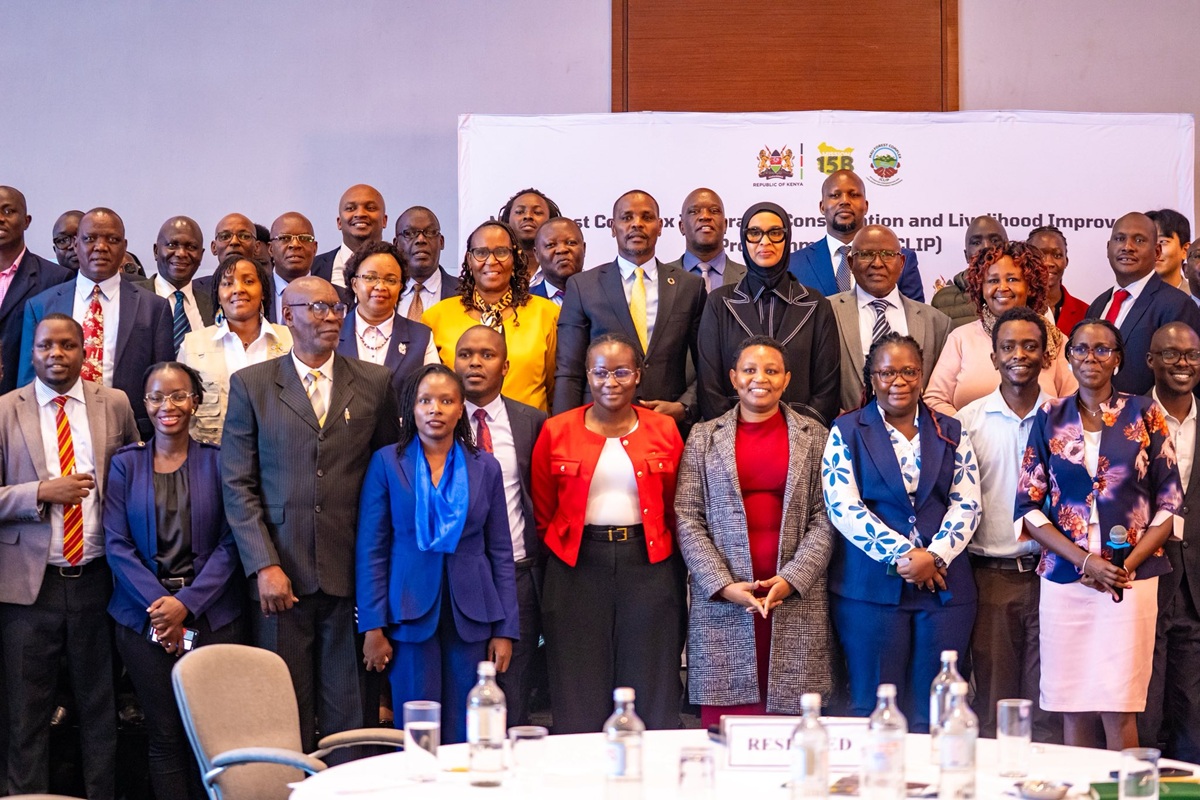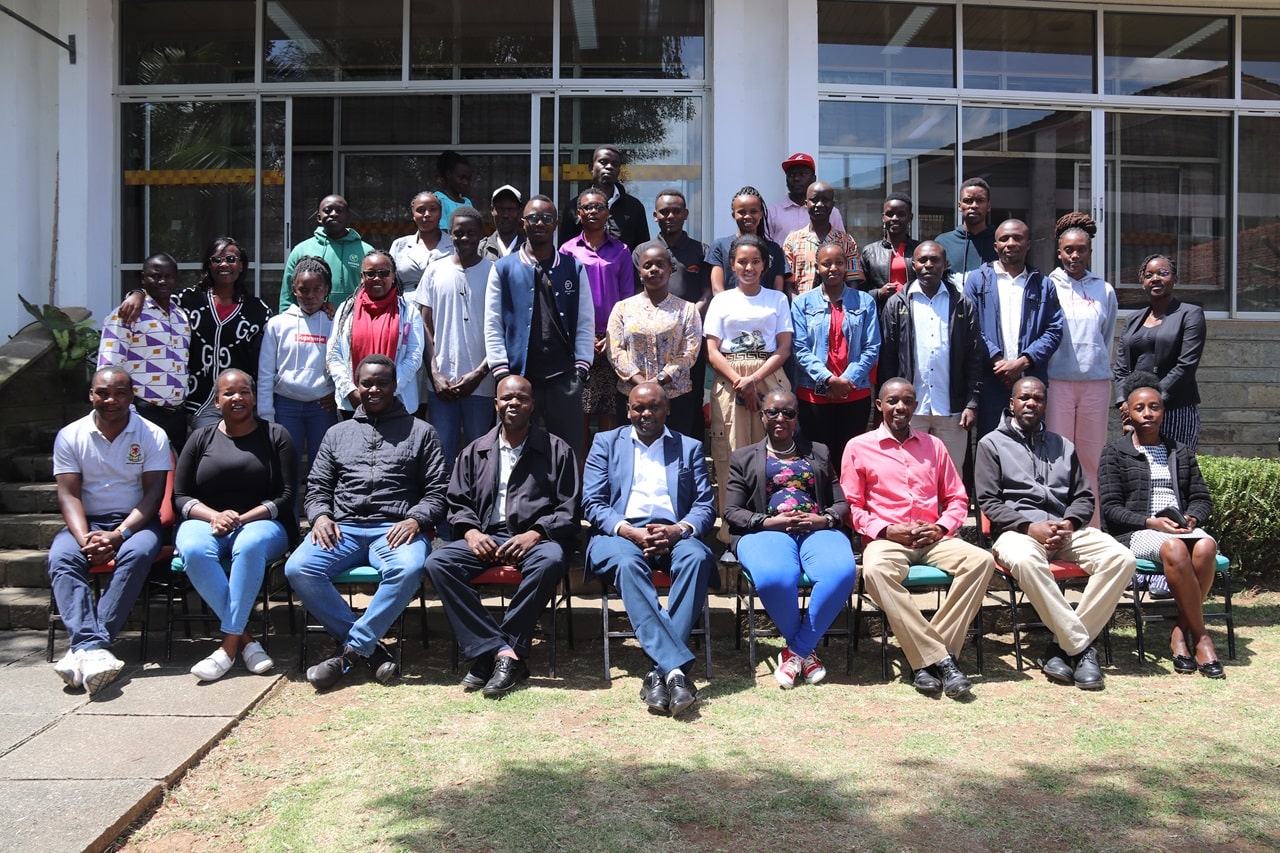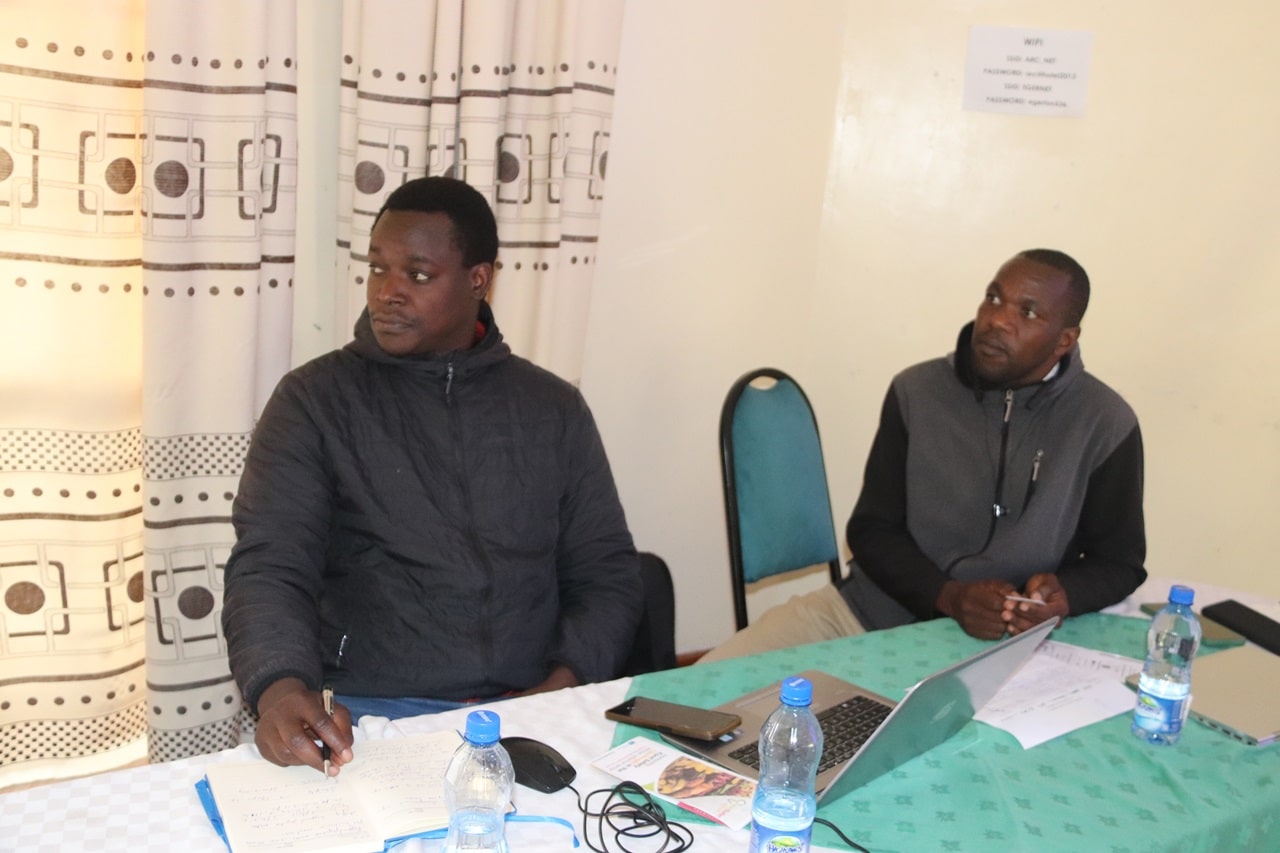Experts from the Kenya Plant Health Inspectorate Service (KEPHIS) have equipped students at Egerton University with crucial skills in food safety and aflatoxin management. The two-day intensive training, conducted under the Food Safety 4 Africa project, aimed at enhancing students' knowledge of mycotoxin detection, laboratory safety, and innovative solutions to food contamination.
The training was organized through a collaboration between Egerton University and KEPHIS, led by Mr. Ivan Obare and Mr. Maiyo Samuel. It was part of the broader Food Safety 4 Africa initiative, headed by Prof. George Owuor as the Principal Investigator (PI), with coordination from Prof. Paul Kimurto and Dr. Miriam Karwithia Charimbu as technical experts.
During his opening remarks, Prof. George Owuor emphasized the need for producing safe foods that benefit both local consumers and international markets. He pointed out the project's significance in combating aflatoxin contamination, a persistent threat to food safety in Africa. He highlighted that ensuring food safety is not only crucial for public health but also for enhancing Africa's competitiveness in the global food trade.
Prof. Paul Kimurto, the project coordinator, outlined the key deliverables of the Food Safety 4 Africa project. These include the release of groundnut varieties resistant to aflatoxin, the development of biocontrol agents to control aflatoxin contamination, and the encouragement of innovative student-led solutions to food safety challenges. He noted that the project is funded by the European Union and implemented in collaboration with partner countries, including Kenya, Ghana, Nigeria, and South Africa.
Enhancing Food Safety Knowledge
The first day of training focused on enhancing students' understanding of mycotoxins, harmful compounds produced by certain types of fungi that contaminate food products, posing significant health risks to humans. Mr. Ivan Obare from KEPHIS introduced the students to the occurrence of mycotoxins in Kenya and their impact on public health. He emphasized the need for rigorous safety standards in food production to minimize health risks.
Participants were trained on the importance of random sampling to achieve homogeneous mixtures, which are essential for accurate mycotoxin detection. Mr. Obare stressed the importance of proper sample handling, advising students to use ziplock bags to prevent contamination during transportation. He also emphasized the need for surface sterilization upon arrival at the laboratory to maintain sample integrity.
Mr. Maiyo Samuel guided students through various toxin extraction methods, including Immunoaffinity Chromatography, which uses antibodies to isolate specific toxins, and Solid-Liquid Phase Extraction, which separates toxins from food matrices. He also demonstrated the QUECHERS method, an effective technique for multi-residue analysis in food safety testing.
Hands-On Laboratory Experience
The second day of training provided students with hands-on experience in advanced food safety analysis techniques. At Prof. Matasyo’s laboratory, students were introduced to High-Performance Liquid Chromatography (HPLC), a powerful tool used to detect aflatoxins and other food contaminants.
Prof. Matasyo explained the principles of HPLC, detailing its evolution from Liquid Chromatography (LC) to the modern, more precise HPLC technology. He emphasized the importance of proper sample preparation before injecting them into the HPLC machine to obtain accurate and reliable results.
The students then interacted with the HPLC machine under the guidance of Dr. Devina, who explained the various components of the machine and demonstrated its operation. She also showcased pre-prepared samples ready for injection, giving the participants practical insights into food safety testing.
Mr. Maiyo Samuel continued the training by teaching students how to interpret results from HPLC analysis. He also demonstrated the extraction of Vitamin E for HPLC testing, highlighting the machine’s versatility in analyzing different food compounds.
The training concluded with a visit to the Soil Microbiology Lab, where students learned about culture preparation using PDA (Potato Dextrose Agar) media and Rose Bengal Chlorophenol media. This practical session was led by Mr. Ivan Obare from KEPHIS and Ogutu Omori, an MSc Crop Protection student from Egerton University’s Department of Crops, Horticulture, and Soils.
Significance of the Training
The Food Safety 4 Africa training provided Egerton University students with practical skills essential for careers in agriculture, food science, and crop protection. By interacting with KEPHIS experts, students gained industry insights into food safety regulations and best practices in sample handling, extraction methods, and laboratory safety.
The training also fostered innovation among students, encouraging them to develop creative solutions for food safety challenges. This aligns with the project’s objective to promote safe food production in Africa while enhancing the continent’s global food market competitiveness.
Empowering the Next Generation of Food Safety Experts
The initiative was part of the broader mission of the Food Safety 4 Africa project to empower the next generation of food safety experts in Africa. Led by Prof. George Owuor, with coordination from Prof. Paul Kimurto and Dr. Miriam Karwithia Charimbu, the project continues to foster collaborations between academia and industry, bridging the gap between theoretical knowledge and practical applications.
By equipping students with advanced skills in HPLC analysis, mycotoxin detection, and laboratory safety, the training ensures they are well-prepared to address real-world food safety challenges. It also empowers them to contribute to Africa’s food security and public health, supporting the continent's goal of producing safe, high-quality food for local and international markets.
Writer is a communication Officer
Directorate of Marketing and Resource Mobilization
Egerton University
Email:
Website: www.egerton.ac.ke












